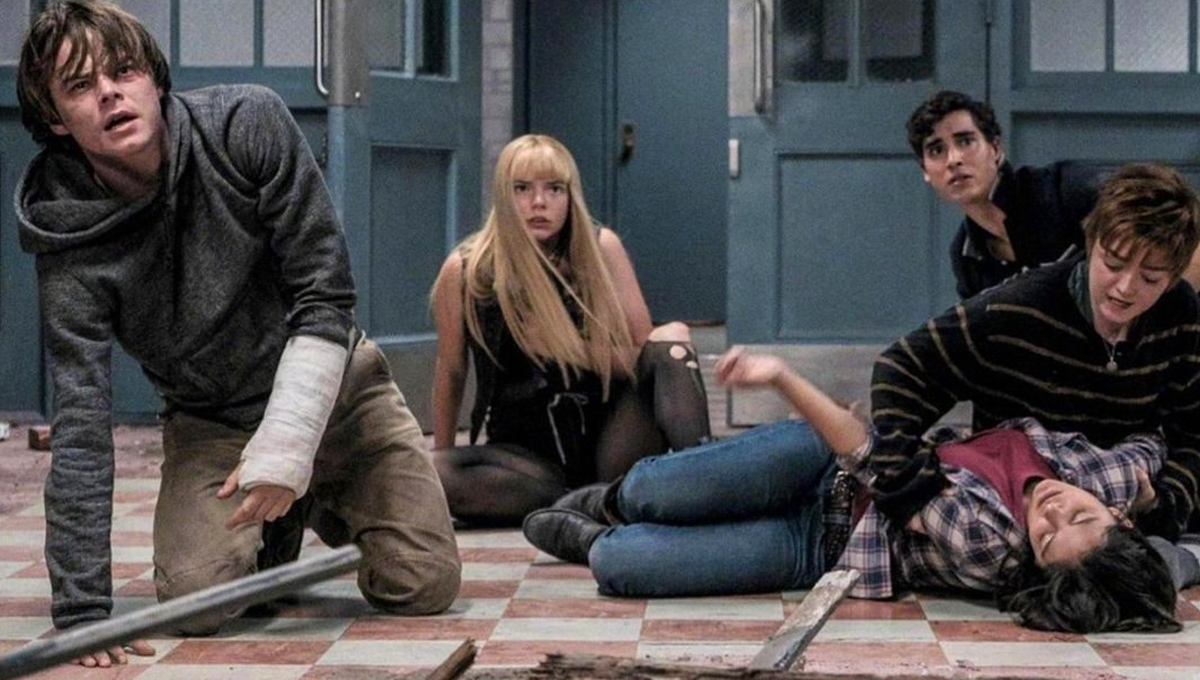This article contains New Mutants spoilers.
Ah, the sorry tale of the New Mutants movie. Completed just as Disney absorbed 20th Century Fox, Josh Boone’s horror-tinged YA X-Men flick never got its promised reshoots, was shelved, had its release date kicked around the calendar – first by an indifferent studio and then by the pandemic – before finally arriving with a whimper in limited theatrical release earlier this fall and (finally) on streaming last week. Like its troubled young characters, New Mutants bears the scars of its difficult past, and then gets saddled with the added burden of being neither a true coda to 20 years of Fox’s X-Men movies (last year’s rightfully maligned Dark Phoenix got that “honor”) nor is it vivid or exciting enough to be considered a way to potentially kickstart mutants into the MCU.
Despite all of these problems, there’s something refreshing about New Mutants‘ approach, from its low key, small scale approach, to the horror movie elements that allow it to flirt with an R-rating, to its almost complete abandonment of the kind of interwoven shared cinematic universe gymnastics that are positively obligatory in superhero movies these days. Sure, there’s a passing mention of Charles Xavier and the X-Men, a blink-and-you’ll-miss-it use of footage from Logan, and the movie’s villain is working for the Essex Corporation, meaning that Mr. Sinister is behind many of our young heroes’ woes, but New Mutants is surprisingly – even refreshingly – light on Easter eggs and franchise or comic book callbacks.
But there’s one that’s so subtle that it definitely qualifies, and depending on how you look at it could be a meta joke at the entire franchise’s expense.
At the heart of New Mutants is the budding love story between Dani Moonstar (Blu Hunt) and Rahne Sinclair (Maisie Williams). As the two young mutants begin to realize their mutual attraction, they sneak out of the hospital one night to share their thoughts, fears, and a kiss elsewhere on the grounds where they’re ostensible prisoners. The trailers for New Mutants all showed a mysterious graveyard on the hospital grounds, one that adds to the ominous feel of the hospital and the film’s horror movie vibes. It’s in that graveyard where the movie’s biggest X-Men reference happens.
The graves are simple, unadorned, and eerily marked only with numbers rather than names, indicating just how disposable the world sees mutant children. Rahne and Dani lay down in front of one of those graves to watch the rain, and as they do, we can clearly see that this one is marked “137,” a number which holds special significance for fans of the original Marvel Comics X-Men.
Released in 1980, The Uncanny X-Men #137 was the end of the famed “Dark Phoenix Saga” and featured the death of Jean Grey. It’s certainly the most famous death in X-Men history, and one of the most celebrated single issues of all time. While New Mutants clearly isn’t implying that Dani and Rahne are actually lying atop Jean Grey’s grave (the movie Jean went out in fiery cosmic fashion at the end of Dark Phoenix), it’s unlikely the filmmakers chose this number by accident.
Instead, maybe this is meant as a subtle commentary on the state of the X-Men franchise. Like other riskier efforts such as Logan or Deadpool, New Mutants was always intended to just be somewhat tangentially related to the rest of Fox’s films, and it’s likely that the writing was on the wall for the state of the series by the time these scenes were being filmed. Two of this film’s leads sharing a quiet moment atop the grave of a far more bombastic, franchise-minded entry feels appropriate, especially given how these movies (mostly) tried to forge their own path over two decades.
Did you spot any other significant numbers on those tombstones in the film? Let us know in the comments!
